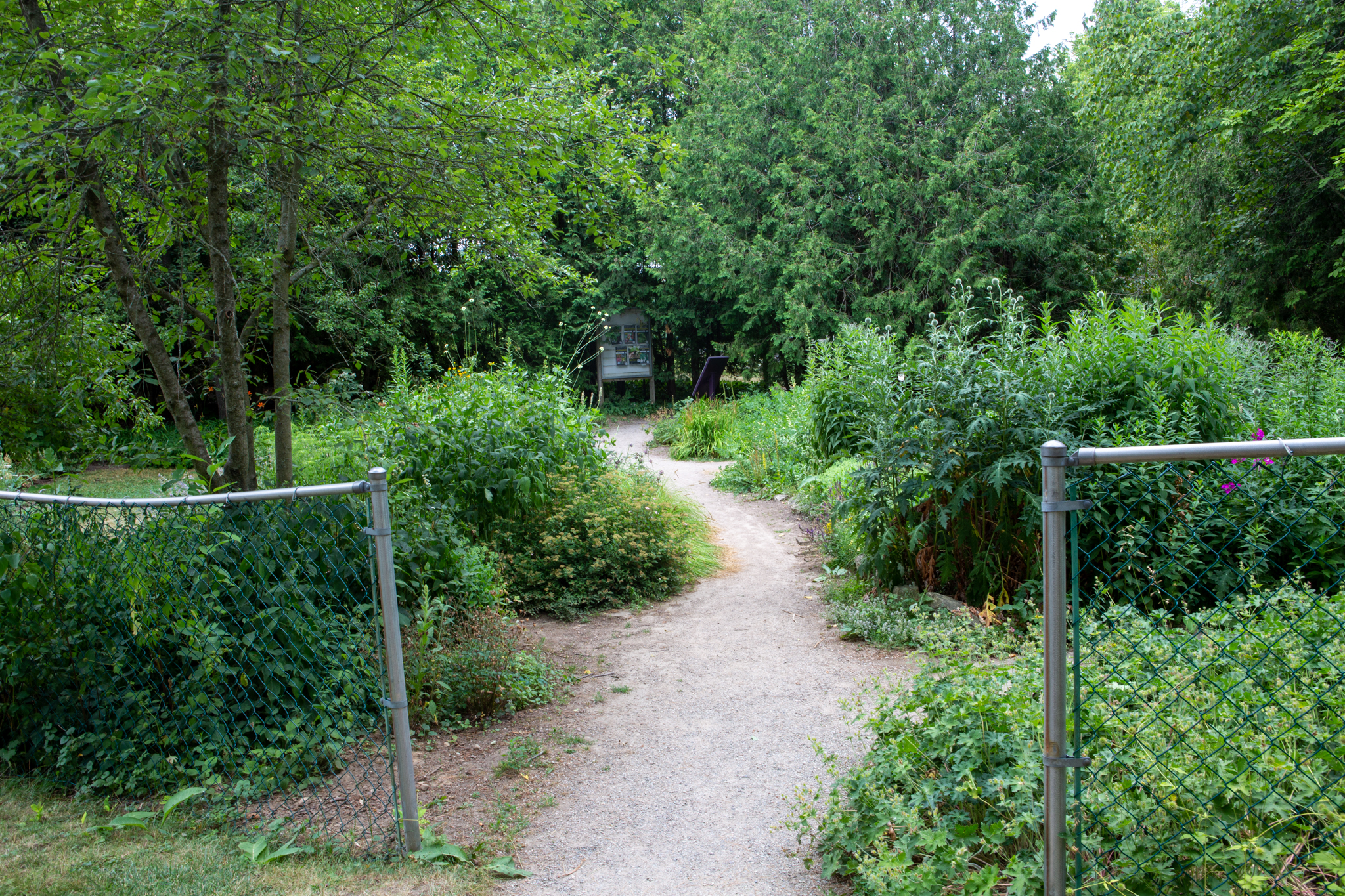Caelum Wishart
Stories from the Arboretum Head Gardener
As the head gardener at the Arborteum, Caelum Wishart spends a lot of time pondering the design and plantings, and reflecting on how the landscape changes over time. With the effects of climate change, it is more important than ever to preserve the spaces where plantings and wildlife can grow and thrive together. For Caelum, the arboretum is a place of work, but also of inspiration and ideas for his own garden, and where he can immerse himself in the early morning sights and sounds of nature.
Interview by Lauren Budey, HIST*3560 student, University of Guelph.
Listen to more stories:
A Magical Day
Memorial Forest: A Place to Remember
A Peek Inside an Abandoned Historic House
Transcript
0:02 My name Cael Wishart is and I’m the head gardener here at the arboretum.
0:07 So right now we’re in the Gosling wildlife gardens in garden one, which is the pollinator gardens.
0:13 Everything that’s planted in here is benefit to pollinators through their blooms or their foliage.
0:20 We also have a newly built pond which has been a big attraction the last year.
0:26 and a really important feature for different wildlife species to have that source of water available for them.
0:32 including insects. When this was first planted, this is all open sun, open fields so that influences the types of plants that you can put in here.
0:42 And so over time you start to see the trees get bigger and things get shaded and then that sort of changes the microclimate within in space is a lot different than it was 30 years ago.
0:52 Things that were put in here originally are now considered invasive.
0:57 It is kind of a privilege to work in here and I do treat it as if it was my own garden as well as a gardener.
1:03 I’m always so critical of spaces.
1:06 it’s hard for me to if it’s my garden and I walk in, I see what’s wrong with it.
1:10 And I have taken so much inspiration of the design techniques in here and the different plants that are in here.
1:16 So much so that if anyone asks me.
1:19 OK, can you plant my garden? like my mom or someone
1:22 Some of our friends, I always draw inspiration off these gardens.
1:26 And we’ve also recently updated our signage and labels to help people sort of ID plants and give them tools and resources to help sort of implement those different techniques and plants within their own garden.
1:40 Before I, I used to work in very formal gardens like English gardens and rose gardens and stuff like that.
1:48 But, you know, they do have some wildlife benefit in some sense, but a lot of is catered towards human aesthetic.
1:55 Wildlife doesn’t care about, like, what we perceive as beautiful, though you can make a wildlife garden really beautiful.
2:02 It has really changed my eye of how to look at a garden space to see it through maybe different wildlife lenses and how they can use that space and how it supports that.
2:14 And you know, everything that’s going on right now with climate change and habitat loss is becoming more important now than ever that people start using the space that they have on the property to support wildlife in some way because it is becoming more finite resource.
2:29 A lot of habitats being fragmented and you know, more cities are being built.
2:33 So whatever way that we can support them, I think is really critical right now.
2:40 So that’s why it’s become really important for me to convey to people that visit here.
2:44 It does seem like there’s a bit of a reduction in different wildlife species visiting here, which is sad to see but whatever we can do to support them on this level and in this area is meaningful for me.
2:57 I love being out here at seven in the morning and just listening to the birds chirp and the squirrels yell at each other.
3:04 And there’s so many different interactions that are going on that you see and, and even at like a very minimal level, if you just look at like one stem of a plant or something, you see all the different things that are happening on it.
3:17 So yeah, it it does bring up a lot of emotions.
3:20 most of which are very calming and relaxing, but also very gratifying to see that you are supporting a range of species outside of just humans.




